WAND is proud to be launching the first stage of its new strategy in January 2022. Our new strategy sees a revamp of our mission values and aims.
We are taking on a new perspective – coming from a place of recognition and celebration of the strengths of women in Dorset and being steeped in core values that will guide us in the work that we do. We will have three priority focus areas – working with charities and partners to raise funds and awareness of, and for, the women most in need in our county and we will be building networks that bring people together to connect, to grow and to heal. We will listen to Women’s stories and honour them by sharing them with people who need to hear them and giving allyship to the challenges they face. Read the full Strategy Below.
Diversity and Difference Vs Commonalities and Connection
Women of Dorset are a diverse range of people. There are approximately 393,000 resident women and girls in the county.
These women vary hugely; there are more older women than young women and that number is rising. There is health inequality across the county and inequality of life expectancy is worse than the national picture. There is considerable wealth in some areas an extreme deprivation in others. There are groups of women experiencing unprecedented racism and others excluded or limited by disability or health conditions. Other women are experiencing a higher-than-average quality of life.
There is a growing community of women who identify as having LGBTQI+ characteristics and a higher-than-average number of young women with mental health difficulties and women experiencing substance misuse and self-harm. This is in contrast to other women thriving in certain areas of the county and a higher than average number of women offering therapeutic and health-related services privately to women with means to access them.
On average, the number of working women is falling whilst the number of workless households is growing. Yet in areas of affluence, female entrepreneurs are thriving and business networks are seeing rising numbers of women in leadership positions. The numbers of self-employed women in Dorset is higher than the national average. And yet the average wage in Dorset is lower and falling. The big employers in Dorset are in the areas of manufacturing, health, retail, education and hospitality making it more likely that there are more women in lower paid jobs than there are earning high salaries living in very specific areas of the county.
46% of Dorset Women live in rural communities and the rest in the urban conurbations of Bournemouth, Christchurch and Poole. Women living in the East of the county experience better access, therefore, to health services, transport networks and childcare opportunities.
There are women across Dorset at all ages and stages of womanhood ; adolescence, fertility, peri-natal, transition, health conditions, menopause, or navigating a huge range of female health conditions. There are women in and out of education, homeless women, traveller women, women who are carers or being cared-for themselves. There are women experiencing freedom and those who are trapped – whether physically or emotionally or whether through addictions or culture and society. There are working mums, community activists, isolated elders, faith leaders, night-shift workers, marathon runners, refugees, business owners, prison inmates, university lecturers, doctors and bus drivers.
In summary – the expression ‘women’ describes such a hugely diverse range of people that it raises the question of; What do all these people have in common?
Equally, it cannot be ignored that the word ‘woman’ is also no longer a binary definition and includes all people who identify as being female, feminine or identify with womanhood in its broadest and not-necessarily binary sense.
NB: Women’s Action Network Dorset | WAND embraces any person that identifies with the word Woman and the issues that relate to Women and all further reference to Women means and includes all these people.
Therefore, the WAND Strategy for 2022 focusses on the principles that underpin the commonalities of all these people and the connections they could make with one another for the greater good of everyone.
- All Women have strengths
- All Women have internal resources to give as well as to receive
- All women have the capacity to heal, learn, grow and connect
- All women have something to contribute and, at times, have the need for support

